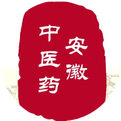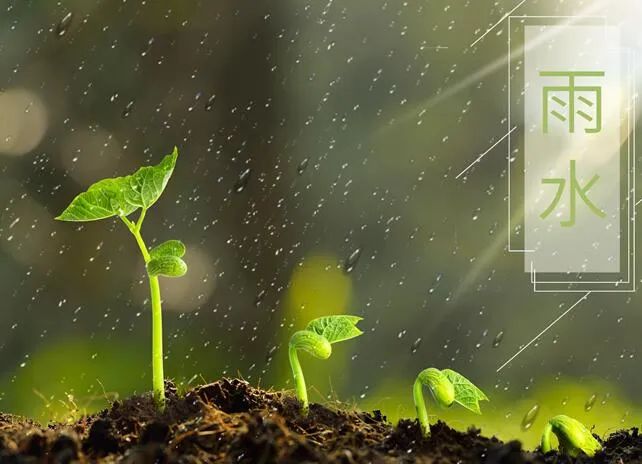
Rain Water (Yushui) is the second solar term in the 24 solar terms, occurring between February 18-20 each year.
According to the “Monthly Orders and the Seventy-Two Seasonal Phenomena” (Yueling Qizhi), it states: “After the beginning of spring, the following is Rain Water, and when the east wind thaws, it disperses and becomes rain water.” The Rain Water solar term not only indicates the beginning of precipitation but also signifies an increase in rainfall. At this time, the yang energy in nature further develops, and the climate begins to warm. With the arrival of the Rain Water solar term, the snowflakes and cold weather gradually disappear, making way for the warm spring breeze and gentle rain.
In harmony with nature, spring is also the time for the human body’s yang energy to flourish, corresponding to the liver, which belongs to the Wood element. Therefore, during spring, the liver qi can easily become excessive, restraining the spleen and earth, leading to adverse effects on the spleen and stomach functions, which belong to the Earth element, causing symptoms of weakness in the spleen and stomach and hindering normal digestion and absorption of food.
The Tang dynasty physician Sun Simiao in the “Prescriptions Worth a Thousand Gold” (Qianjin Fang) stated that spring dietary practices should “reduce sour and increase sweet,” meaning that one should decrease the intake of sour foods and increase the intake of sweet foods. Among the five flavors, sour enters the liver, while sweet enters the spleen. “Reducing sour and increasing sweet” can nourish the spleen and stomach. In spring, appropriately supplementing sweet foods can strengthen the function of the spleen. It is recommended to consume foods such as yam (Shan Yao), millet (Xiao Mi), glutinous rice (Nuo Mi), red dates (Hong Zao), spring bamboo shoots (Chun Sun), coix seed (Yi Yi Ren), cowpeas (Qiang Dou), lentils (Bian Dou), carrots (Hu Luo Bo), sweet potatoes (Hong Shu), potatoes (Tu Dou), pumpkins (Nan Guo), longan (Gui Yuan), crucian carp (Jizhi), and black-boned chicken (Wu Ji).
Here are several representative medicinal dietary recipes for health maintenance during the Rain Water solar term.
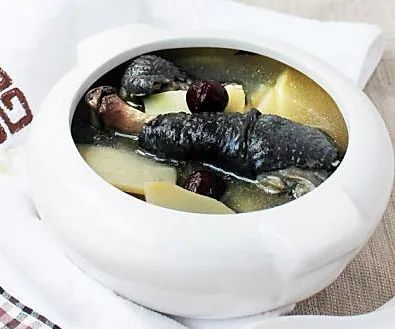
Black-Boned Chicken and Spring Bamboo Shoot Soup
Ingredients: Half a black-boned chicken, 100g spring bamboo shoots, 5g angelica (Dang Gui), 10g astragalus (Huang Qi), 8 red dates, 15g ginger, 10g malt (Mai Ya), 6-8 Sichuan peppercorns, salt to taste.
Preparation: Clean the black-boned chicken and cut it into pieces, blanch in cold water with Sichuan peppercorns; wash Dang Gui, Huang Qi, and Mai Ya, and place them in a tea bag; put the tea bag, red dates, black-boned chicken, and ginger into a clay pot, add appropriate water, bring to a boil over high heat, then reduce to low heat and simmer for about 1 hour; add spring bamboo shoots, season with salt, and simmer for another 15 minutes to complete.
Effects: Spring bamboo shoots transform phlegm and relieve qi, soothe the liver and strengthen the spleen, and moisten the intestines to relieve constipation; black-boned chicken replenishes deficiency, warms the middle, and is rich in protein and B vitamins, which can enhance physiological functions, delay aging, strengthen muscles and bones, and has significant effects in preventing and treating osteoporosis, rickets, and iron-deficiency anemia in women; Dang Gui nourishes blood, regulates menstruation, invigorates blood circulation, and relieves pain, suitable for those with excessive menstrual flow, fatigue, palpitations, shortness of breath, and insomnia; Huang Qi tonifies qi and stabilizes the exterior, used for shortness of breath and palpitations, spontaneous sweating. The entire formula nourishes blood, supports the liver, and regulates liver qi.
Indications: Suitable for symptoms of pale complexion, numbness in limbs, cramps, and vivid dreams due to liver yin deficiency, as well as chest and rib distension, irritability, abdominal distension, nocturnal emissions, and menstrual irregularities due to liver qi stagnation.
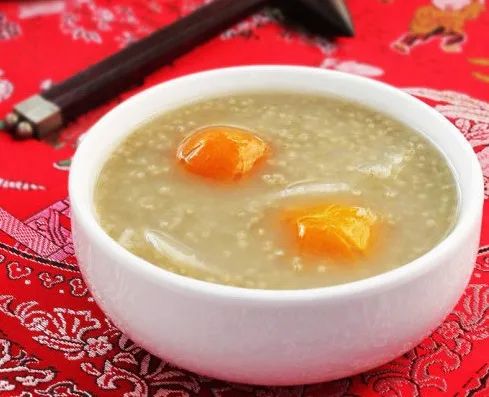
Golden Orange, Yam, and Millet Porridge
Ingredients: 20g golden orange (Jin Ju), 100g fresh yam, 50g millet, appropriate amount of white sugar.
Preparation: Clean the golden orange and score the surface or slice it; wash and peel the yam, then slice it; rinse the millet; combine all three ingredients in a pot, add appropriate water, bring to a boil over high heat, then reduce to low heat and simmer until the millet is cooked and the porridge thickens, adding white sugar to taste according to personal preference.
Effects: Golden orange has the effects of soothing the liver and relieving depression, promoting qi and alleviating pain, as well as strengthening the spleen and appetizing, and resolving phlegm. This recipe primarily features golden orange, combined with yam and millet to create a comprehensive effect of soothing the liver, strengthening the spleen, promoting qi, alleviating pain, and enhancing appetite.
Indications: Suitable for health maintenance before and after the Rain Water solar term and during the first month of the lunar calendar, promoting smooth liver qi, abundant qi and blood, strong spleen and stomach, and pleasant appetite; also applicable for treating emotional depression, headaches, irritability, chest and abdominal distension, poor appetite, belching, and constipation due to liver qi stagnation and spleen and stomach deficiency.
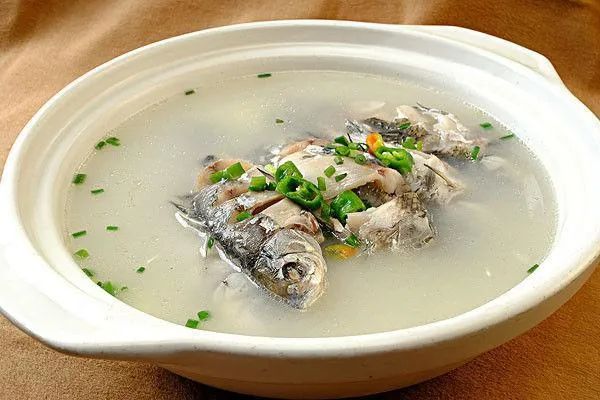
Sand Ginger and Crucian Carp Soup
Ingredients: 4 crucian carp (about 1000g), 6g sand ginger (Sha Ren), dried tangerine peel (Chen Pi), fennel (Xiao Hui Xiang), and chili powder each, 3g pepper powder. Appropriate amounts of garlic, ginger, scallions, fine salt, vegetable oil, and clear soup or hot water.
Preparation: Scale, gill, and gut the crucian carp, wash and drain, and score the fish; wash and shred the dried tangerine peel; peel and slice the garlic; wash and slice the ginger and scallions; mix sand ginger, dried tangerine peel, fennel, chili powder, pepper powder, garlic slices, ginger slices, and scallion segments with salt; stuff the prepared mixture into the belly of each fish; heat a pan, add vegetable oil, and fry the crucian carp until golden and cooked, then drain the oil; in another pot, add a little vegetable oil, sauté ginger slices and scallion segments until fragrant, then add clear soup or hot water, season, and briefly cook the fried crucian carp in the soup until boiling. Serve directly.
Effects: Crucian carp strengthens the spleen and stomach, promotes urination and reduces swelling, and unblocks blood vessels, primarily treating food intake issues, postpartum lactation problems, and conditions like edema, dysentery, and abscesses due to spleen and stomach deficiency; sand ginger transforms dampness, promotes qi, alleviates stagnation, and warms the middle, suitable for treating food intake issues, abdominal distension, abdominal pain, diarrhea due to spleen and stomach deficiency, and chest distension and belching due to liver and stomach qi stagnation, as well as nausea and vomiting during pregnancy and fetal restlessness.
This recipe originates from the Yuan dynasty dietary minister Hu Sihui’s “Essentials of Dietary Therapy,” featuring crucian carp and sand ginger, complemented by medicinal and edible ingredients like dried tangerine peel, fennel, chili, and pepper, which together promote warming the middle, promoting qi, alleviating stagnation, and strengthening the spleen while promoting urination.
Indications: Suitable for health maintenance before and after the Rain Water solar term and during the first month of the lunar calendar, promoting smooth liver qi, abundant qi and blood, strong spleen and stomach, and normal digestion. Additionally, it is applicable for treating chronic gastritis, ulcer disease, chronic nephritis, and conditions like food intake issues, abdominal distension, abdominal pain, diarrhea, limb edema, and urinary difficulties due to spleen and stomach qi deficiency, as well as nausea and vomiting during pregnancy and poor appetite due to liver and stomach qi stagnation.
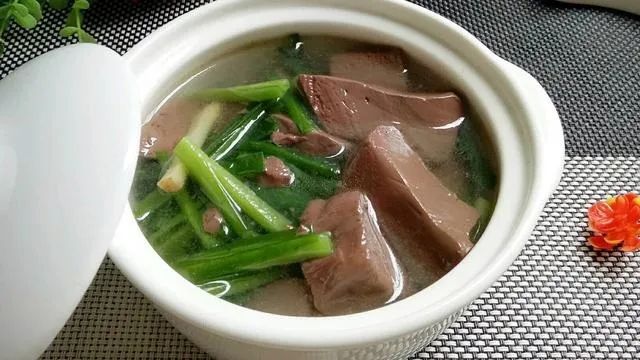
Ginger and Chive Pork Blood Soup
Ingredients: 60g fresh ginger, 100g chives, 500g pork blood, appropriate amounts of fine salt, sesame oil, and pepper powder.
Preparation: Peel the ginger and cut it into large pieces, then smash with the back of a knife; wash and cut the chives into sections; clean and cut the pork blood into pieces. In an iron pot, add 1250ml of water with ginger, bring to a boil, then add the pork blood, cook slightly, and finally add the chives, boil, and season with fine salt, sesame oil, and pepper powder.
Effects: This recipe is a folk remedy from Guangdong. “Smashing ginger” is a common cooking method in Guangdong, where large pieces of peeled ginger are smashed to release more flavor into the soup. “Rolling soup” is one of the four methods of preparing soup in Guangdong, where water and ginger are boiled, and then vegetables and meat are added until just cooked, resulting in a clear and flavorful broth. Fresh ginger dispels cold, warms the stomach, stops vomiting, and transforms phlegm, suitable for treating wind-cold colds, cold stomach vomiting, and cold phlegm coughs. This recipe primarily features smashed ginger, combined with chives, which are best in spring, and pork blood, which nourishes blood. Together, they warm and tonify yang qi, nourish blood, and dispel cold and dampness.
Indications: Suitable for treating headaches, body heaviness, cough with phlegm, and poor appetite due to the cold weather before and after the Rain Water solar term or during the spring “backward spring cold.” Additionally, due to the detoxifying properties of pork blood, chives, and ginger, it is also suitable for individuals frequently exposed to smog.
Author: Xu Yajing, Associate Professor, Anhui University of Chinese Medicine, Institute of Health and Rehabilitation Research, Anhui Academy of Chinese Medicine Sciences
Recommended Reading
The Anhui Provincial Acupuncture Hospital’s Chinese Medicine Anti-Epidemic Medical Team in Cambodia Recognized for Outstanding Performance in Health Aid Work
Abnormal Blood Sugar? National Dietary Guidelines Released! Eating According to the Recipe in Spring Can Help “Control Sugar”!
Changfeng: Renowned Traditional Chinese Medicine Practitioners Deliver Medical Services and Skills to Rural Areas
Xiaoxian: Conducting Health Science Popularization Activities in Schools
Editor: Jiang Hongjie, Zhu Jinsong (Submission WeChat: ahzyy18)


Scan to FollowAnhui Traditional Chinese MedicineAnhui Provincial Association of Traditional Chinese Medicinewww.ahszyyxxh.cn

